Word: Mail Merge

Mail Merge is a useful tool that allows you to produce multiple letters, labels, envelopes, name tags, and more using information stored in a list, database, or spreadsheet. When performing a Mail Merge, you will need a Word document (you can start with an existing one or create a new one) and a recipient list, which is typically an Excel workbook.
Optional: If you'd like to work along with the lesson, you can download the examples below.
- Practice document (Word document)
- Recipient list (Excel workbook)
Watch the video below to learn more about using the Mail Merge feature.
To use Mail Merge:
- Open an existing Word document or create a new one.
- From the Mailings tab, click the Start Mail Merge command and select Step-by-Step Mail Merge Wizard from the drop-down menu.
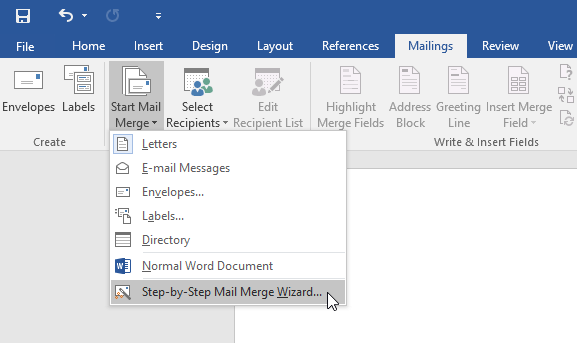
The Mail Merge pane will appear and guide you through the six main steps to complete a merge. The following example demonstrates how to create a form letter and merge the letter with a recipient list.
Step 1:
- From the Mail Merge task pane on the right side of the Word window, choose the type of document you want to create. In our example, we'll select Letters. Then click Next: Starting document to move to Step 2.
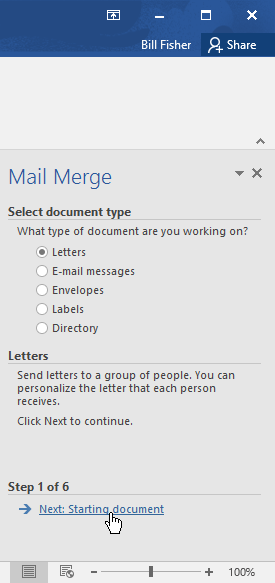
Step 2:
- Select Use the current document, then click Next: Select recipients to move to Step 3.
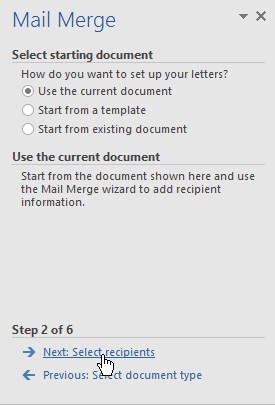
Step 3:
Now you'll need an address list so Word can automatically place each address into the document. The list can be in an existing file, such as an Excel workbook, or you can type a new address list from within the Mail Merge Wizard.
Select Use an existing list, then click Browse to select the file.
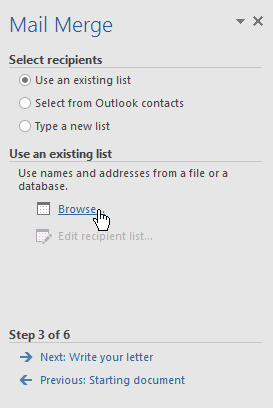
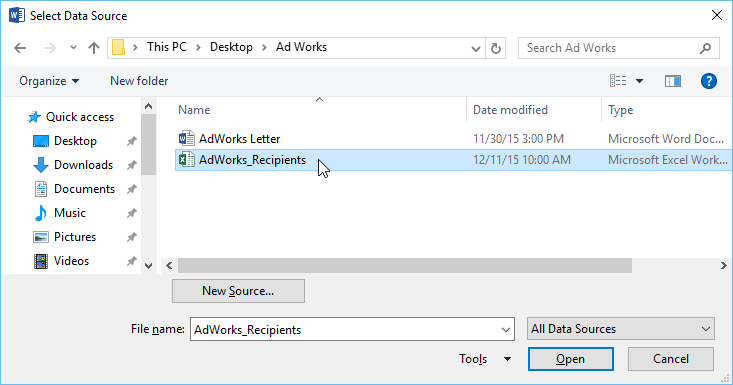
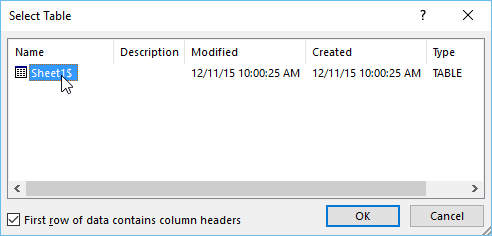
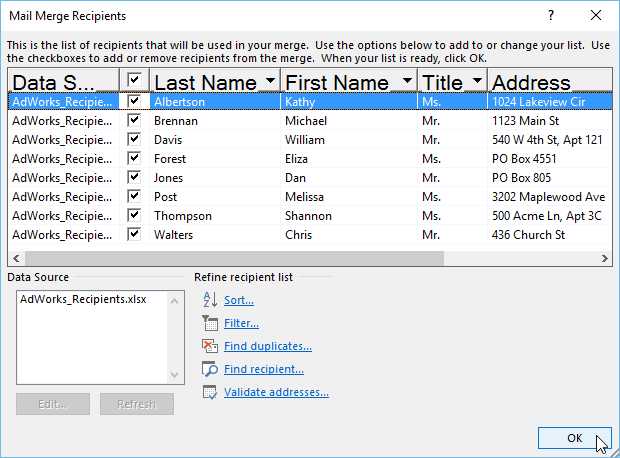
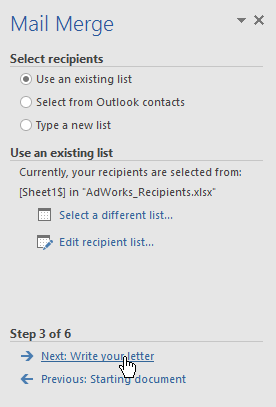
If you don't have an existing address list, you can click the Type a new list button and click Create, then type your address list manually.
Step 4:
Now you're ready to write your letter. When it's printed, each copy of the letter will basically be the same; only the recipient data (such as the name and address) will be different. You'll need to add placeholders for the recipient data so Mail Merge knows exactly where to add the data.
To insert recipient data:
- Place the insertion point in the document where you want the information to appear.
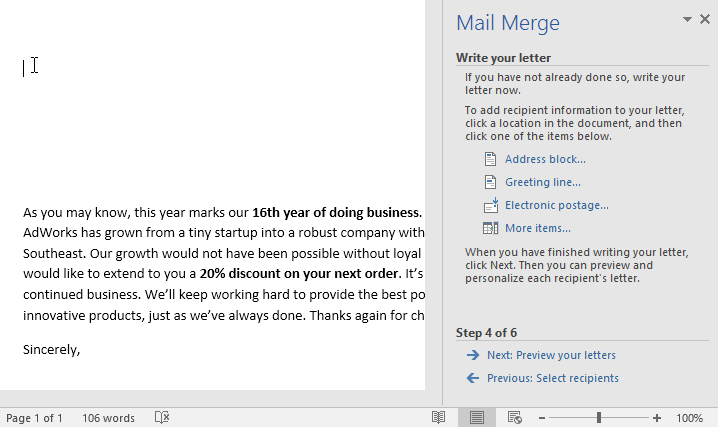
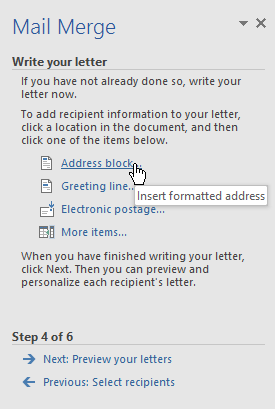
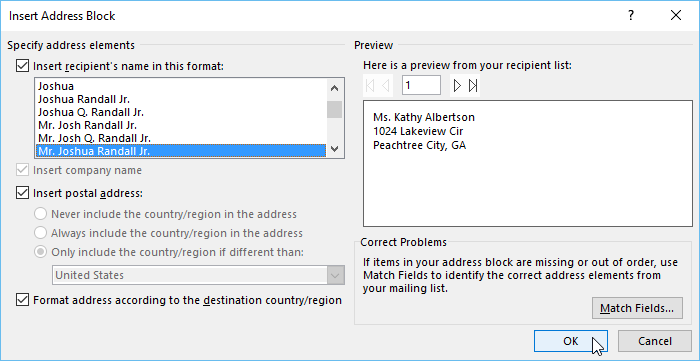
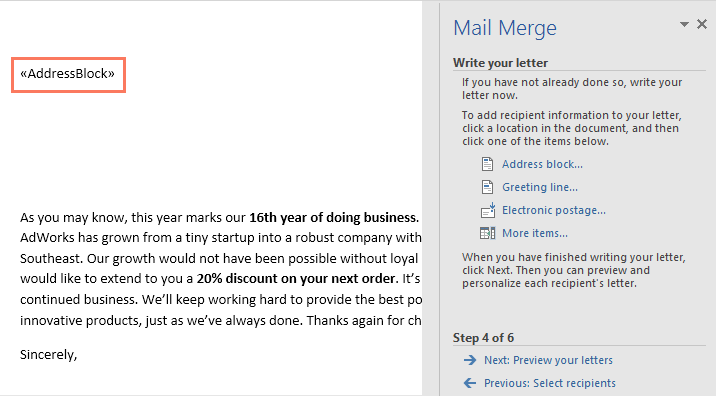
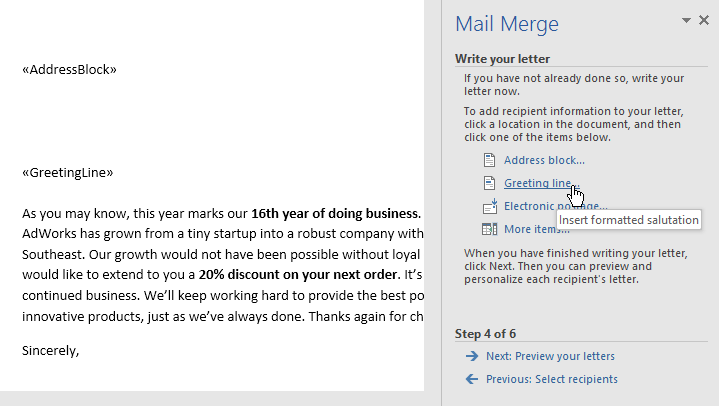
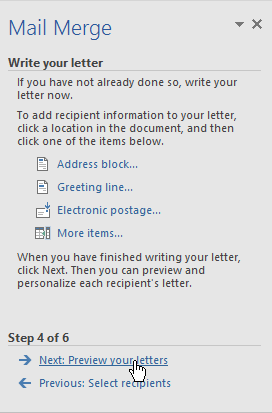
For some letters, you'll only need to add an Address block and Greeting line. But you can also add more placeholders (such as recipients' names or addresses) in the body of the letter to personalize it even further.
Step 5:
- Preview the letters to make sure the information from the recipient list appears correctly in the letter. You can use the left and right scroll arrows to view each version of the document.
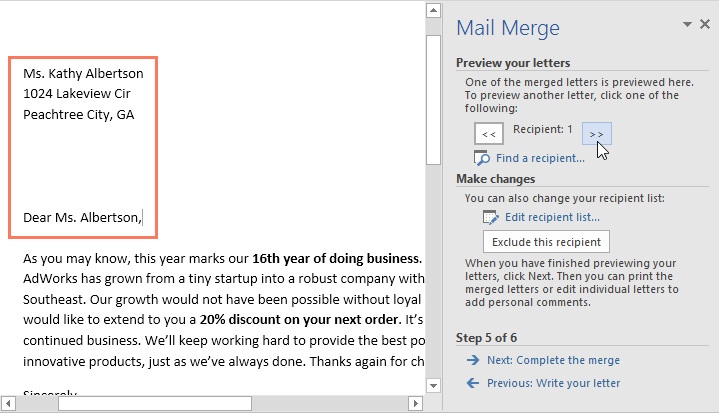
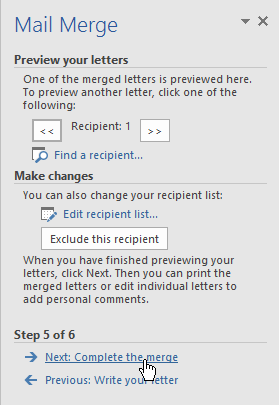
Step 6:
- Click Print to print the letters.
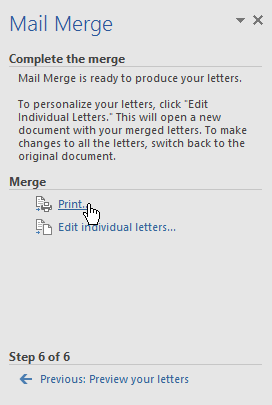
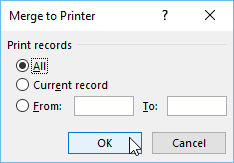
A dialog box will appear. Decide if you want to print All of the letters, the current document (record), or only a select group, then click OK. I n our example, we'll print all of the letters.
The Print dialog box will appear. Adjust the print settings if needed, then click OK. The letters will be printed.
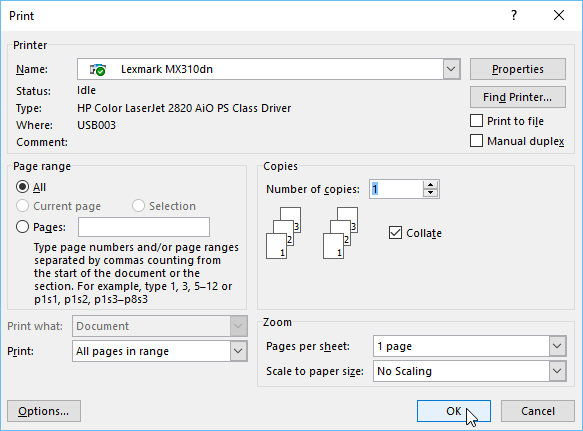
Challenge!
- Open our practice document and practice recipient list.
- Use the Mail Merge Wizard to merge the letter with the recipient list.
- Insert an address block at the top of the document. Choose the second format: Joshua Randall Jr.
- Above the body of the letter, insert a Greeting Line. Format the greeting line so it says Mr. Randall,
- Check your letters to make sure they are formatted correctly. Your third letter should look something like this:





















